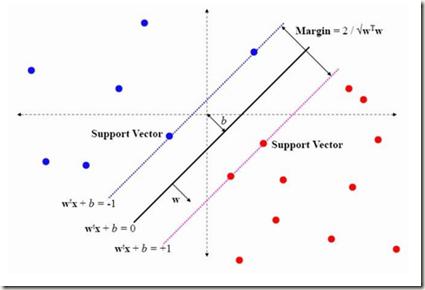The binomial deviance and the SVM hinge loss functions are two of the most widely used loss functions in machine learning. While there are many similarities between them, they also have their own strengths when dealing with different types of data. In this work, we introduce a new exponential family based on a convex relaxation of the hinge loss function using softness and class-separation parameters. This new family, denoted Soft-SVM, allows us to prescribe a generalized linear model that effectively bridges between logistic regression and SVM classification. This new model is interpretable and avoids data separability issues, attaining good fitting and predictive performance by automatically adjusting for data label separability via the softness parameter. These results are confirmed empirically through simulations and case studies as we compare regularized logistic, SVM, and Soft-SVM regressions and conclude that the proposed model performs well in terms of both classification and prediction errors.
翻译:在机器学习中,二进制偏差和SVM断层损失函数是最常用的两种损失函数。 虽然它们之间有许多相似之处, 但它们在处理不同类型数据时也有其自身的优势。 在这项工作中, 我们引入了一个新的指数式家庭, 其依据是使用软度和类分离参数对断层损失函数进行松动松动。 这个新的家庭叫做Soft- SVM, 允许我们设置一个通用的线性模型, 有效地连接到物流回归和SVM分类之间。 这个新模型可以解释, 避免数据分离问题, 通过通过自动调整数据标签的软性参数, 实现良好的适当性和预测性能。 这些结果通过模拟和案例研究得到经验的证实, 我们比较了正常的物流、 SVM 和 Soft-SVM 回归, 并得出结论, 拟议的模型在分类和预测错误方面效果良好。



